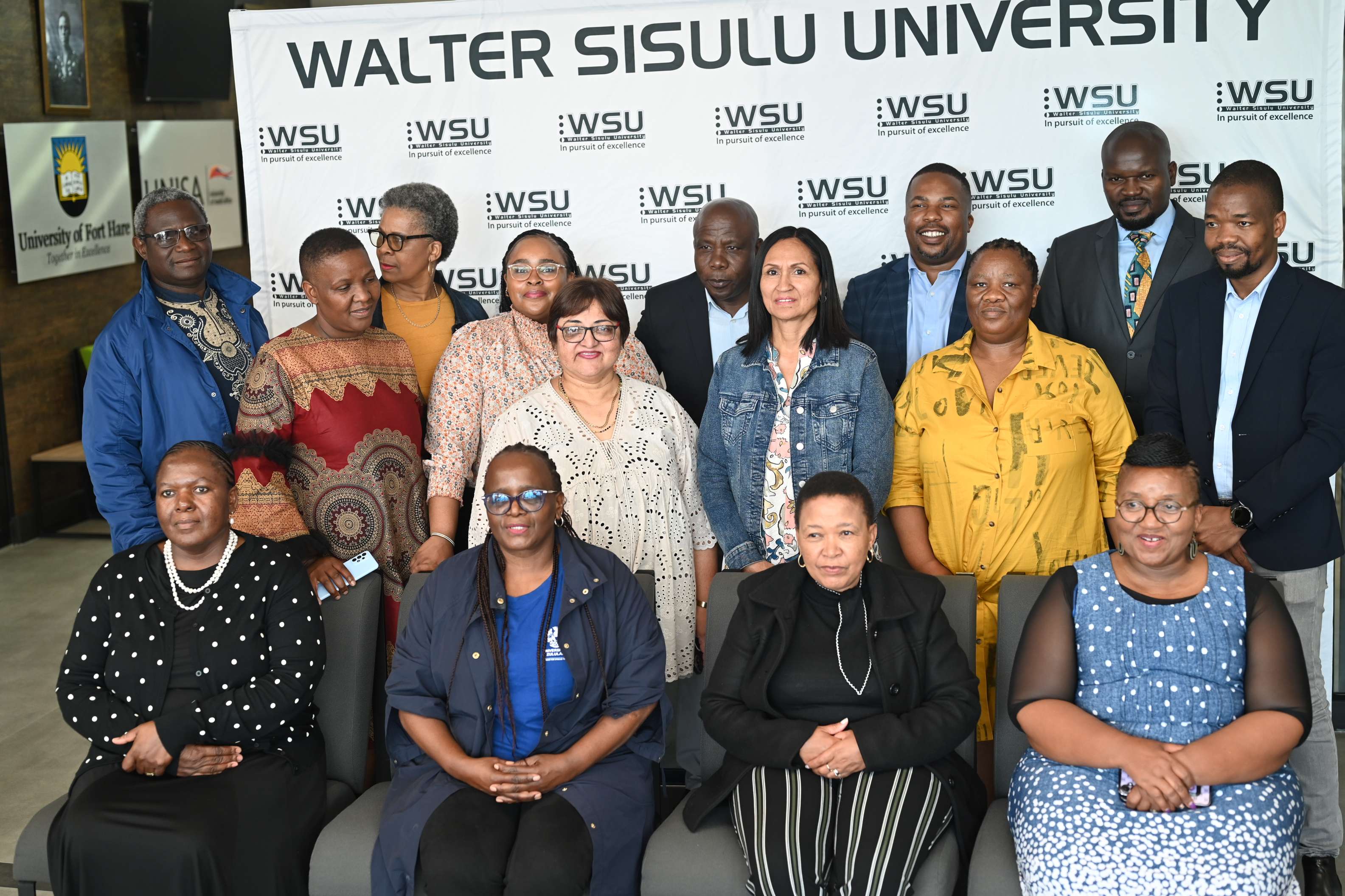WSU HOSTS 4TH SAHDIA WORKSHOP TO DRIVE COLLABORATION AT HISTORICALLY DISADVANTAGED INSTITUTIONS
Walter Sisulu University (WSU) recently hosted the 4th annual gathering of the South African Historically Disadvantaged Institutions Alliance (SAHDIA), marking a significant milestone in advancing the collective objectives of the alliance.
Held in East London, the 4th networking workshop of the alliance brought together Deputy Vice-Chancellors for research, directors of research and postgraduate studies, as well as directors of Internationalisation from HDIs such as University of Venda, University of Limpopo, and the University of the Western Cape.
The gathering provided a platform for universities to collaborate on critical areas, including research commercialisation, entrepreneurship, and capacity development.
Delegates explored synergies, shared expertise, and discussed initiatives aimed at strengthening the position of HDIs within the broader higher education framework.
WSU’s Deputy Vice-Chancellor for Research and Innovation, Professor Elphina Cishe said, “This alliance focuses on areas of common interest amongst us as HDIs, which have been previously overlooked. Through the work of SAHDIA, we can hold each other's hand, and work together to effect positive change within our HDIs."
SAHDIA was formed in 2020 in an effort to enhance the image and reputation of HDIs by advancing knowledge generation through research, translating knowledge in teaching and learning, and applying it in community engagement.
Professor Nosisi Feza, DVC: Research and Postgraduate Studies at the University of Venda said that the alliance had made great strides since formation, including exponential growth in research outputs for universities such as WSU and Univen.
“Over the past four years of collaboration, the research output across these universities has significantly improved. Institutions like the University of Venda are gaining recognition for high-quality research and an increase in rated researchers. This progress reflects the alliance's commitment to mutual empowerment, skill-sharing, and fostering a thriving research environment. Together, we are making strides in advancing research excellence,” said Feza.
This year, the SAHDIA workshop’s agenda underscored the importance of fostering entrepreneurial thinking across all disciplines, starting from the first year of study.
Delegates agreed that integrating entrepreneurship into the institutions’ curriculum would equip students with the skills to innovate and contribute to their communities.
This year’s workshop also served as a platform for the institutions to join forces and secure funding to enhance institutional capabilities.
“The alliance is working on the University Capacity Development Program (UCDP), which offers funding to support historically disadvantaged universities. Even though the 26 November deadline is tight, the universities are fully committed to meeting it. After discussions, the group agreed on three main focus areas for the proposals. The focus now is on creating strong submissions that can secure funding and bring real improvements to the universities,” remarked Cishe.
Another key focus of the group, presented by WSU’s Professor Thobeka Ncanywa highlighted the need for institutions to commercialise their research outputs.
Noting that certain faculties had a stronger focus on research commercialisation, Cishe said that it was high time all disciplines within HDIs focussed on commercialising their research outputs.
“We are determined to follow the example of leading universities in research commercialisation. As a team, we agreed that this should not only involve the Office of Technology Transfer but all fields of study. Areas like education and humanities are often left out, but we want to make sure they are included,” said Cishe.
By Yanga Ziwele

